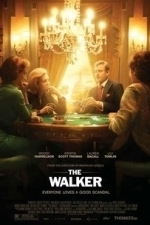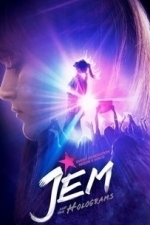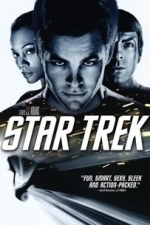Darren (1599 KP) rated The Walker (2007) in Movies
Sep 26, 2019
Performances – Woody Harrelson is the highlight of the film with his engaging performance in an otherwise forgettable story. Kristin Scott Thomas, Lauren Bacall, Ned Beatty bring their big name presence to the film without making the impact to make you care about their characters.
Story – The story takes us into the high society world where the rich believe they can get away with anything, we follow a walker that mingles with the ladies to keep the business with gossip etc, when a murder is committed, he becomes the prime suspect and must figure out how to clear his name before his reputation is ruined. This story is just like you would imagine, it is a series of conversations from people that are always looking down on people who just want to take each other of their high horses through the eyes of a man desperately trying to stay within the circle. This story could have been extended to give more development to the characters through a television series, which would have been a lot more interesting to watch.
Crime/Mystery – The crime side of the film follows the aftermath of the murder which adds to the mystery as to who committed it and why, we do get plenty of suspects, but most people we meet seem to have a shady reason to be in the position they are in.
Settings – The film is set in the Washington high society world, with flashy parties, massive apartments, everything you don’t see people in natural life.
Scene of the Movie – Reporting the murder.
That Moment That Annoyed Me – Not enough time to address the real issues touched on within the story.
Final Thoughts – This is a story that had potential to be much bigger and more interesting only for it to become mostly forgettable with the slow pacing and weak character development.
Overall: Slow and disappointing.

Strata Pro - Remote Control for ATEM Switchers
Photo & Video
App
Strata Pro Remote for BlackMagic Design ATEM Switchers, including ATEM Television Studio, ATEM 1M/E,...

BIDV Smart Banking
Finance and Utilities
App
BIDV Smart Banking là ứng dụng thông minh giúp khách hàng giao dịch với ngân hàng...

WolframAlpha
Reference and Education
App
Remember the Star Trek computer? It's finally happening--with Wolfram|Alpha. Building on 25 years of...
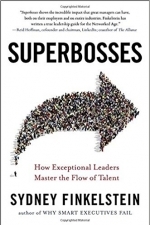
Superbosses: How Exceptional Leaders Master the Flow of Talent
Book
A fascinating exploration of the world’s most effective bosses—and how they motivate, inspire,...
Business

SoccerMeter Pro
Sports
App
The ultimate in possession, passing, shooting, and scoring game statistics for teams and players at...
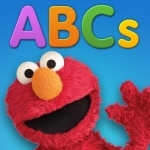
Elmo Loves ABCs
Games and Education
App
This is an app full of games, activities, and videos that will help teach your child about letters,...
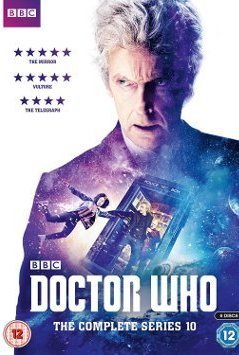
Doctor Who - Series 10 (New Season 10)
TV Season Watch
The tenth series of the British science fiction television programme Doctor Who premiered on 15...
Gareth von Kallenbach (980 KP) rated Jem and the Holograms (2015) in Movies
Jun 19, 2019
Instead of sticking with the original premise and backstory of the popular cartoon series of the 1980s, it tries to modernize itself in a way that holds onto little of its origin other than the name of some of the characters. There is no heart with this film, there is no feeling driving the movie that makes you want to cheer for the characters to become successful. This is mainly due to the film not giving audiences a chance to like the characters or even learn who they really are. The film makes everything look so easy within the music industry. The basic understanding is that if you post a video online, you might be discovered and are immediately offered a recording contract. This storyline will resonate with many of the “Generation Me” and “Kardashian Culture” crowd that is filled dreams of becoming famous for doing little to nothing.
The story is beyond far-fetched in that it every problem, riddle, issue, and negative moment is resolved in the next scene. There is no struggle for any of the characters other than the possibility that their aunt and foster mother may lose their house, but even this is solved within two minutes.
The one shining light in the film is Juliette Lewis as Erica Raymond, CEO of Starlight Records who gives Jem and her sisters the opportunity to take over the spotlight. She is not only the comic relief, but serves the role as a conniving, manipulative recording manager. This is pretty much the only similarity that exists between this film and the original series. Erica prompts older audiences to think of the Misfits (the nemesis to the Holograms) who were continuously trying to sabotage their careers. The rest of the cast, leaves one not feeling connected to them or their storylines. There is no development for any of the people throughout the film. It almost seems as though when making the film, the production team sat around thinking, “It’s Jem, the music will carry the story.” Unfortunately, the music that is included goes no further than being the typical pop music similar to that which is on every station today. There is nothing that stands out about the music, as catchy as it is, that makes you feel as though you should become invested in who these girls are or even that they have something that makes them stand out. With the time that has passed since the cartoon appeared on television, there should have been more investment in who these girls are and why we should care about them. Audiences don’t have that opportunity, as they become famous, seemingly overnight. It almost makes one want to root against them.
There is a real opportunity missed with this film to combine the original show, catering to older audiences who watched the show as children, and update it for a newer generation. The film would have been much better served with inclusion of many of the elements that made the series have such appeal. The approach is very juvenile and rushed. The original show was more than music, it was about the relationships formed by many of the characters and the various adventures that they would pursue. There were stories with depth and continuity which reinforced the aspects of working hard and achievement of goals. The whole movie looks like a diary entry of what an American tween would see as their life in entertainment. The one positive note about the film is the way that it incorporates social media in the development of the story. It demonstrates the connection that is and can be made through music and pop culture.
Sadly, in contrast to the original series, the film demeans and belittles women. Its approach is short-sighted and does not deal with any aspect of reality that one would expect. Jem is nothing more than a manufactured pop music story. There is little that audiences could relate to. In a sense, it is anti-music, and anti-intellectual. The film itself, is filler and a corruption of the origin story and the time that has passed since it first debuted. Audiences of Jem the TV series may be appalled at what they witness, if they do decide to actually watch the film. For younger audiences, this film reinforces the belief that all kids should get participation trophies because they tried. There is the sense that if you just show up, the opportunity will be handed to you. There is no real work on the screen and it seems as though there was no real work or effort put into creating this film. Younger audiences will tout the music and friendship displayed. Older audiences who were fans of the television show will be soundly disappointed in what they witness on the screen. It is a bastardization of what Jem should be in a modern age. There is no soul to this film. Every note that it hits is flat.
http://sknr.net/2015/10/23/jem-and-the-holograms/
Gareth von Kallenbach (980 KP) rated Star Trek (2009) in Movies
Aug 14, 2019
While many fans were thrilled with the choice of Abrams, some of the casting choices of its beloved characters were met with doubt and skepticism. Thankfully, the man behind such motion picture hits as “Cloverfield”, “Mission Impossible 3”, and television series LOST, Alias and Fringe, was more than up to the task and has crafted a visually spectacular action film that combines the best of Trek with groundbreaking effects and creative vitality.
Using a script by Robert Orci and Alex Kurtzman, the new film focuses on the early days of the crew, and how young James. T. Kirk (Chris Pine) went from being a joy-riding, bar-fighting hothead into captain of the Enterprise. Kirk is challenged by Captain Christopher Pike (Bruce Greenwood) to live up to the legacy of his father and make something of his life in Starfleet. Despite his cocky attitude, the young man is able to thrive at the academy despite his arrogant behavior and his womanizing ways.
At the same time, a threat has arisen in the form of a Romulan named Nero (Eric Bana), who seeks to cause massive death and destruction in his quest for vengeance. With danger looming, Kirk and his fellow classmates are pressed into action, and thanks to some skillful work from his friend Leonard Mc Coy (Karl Urban), Kirk finds himself onboard the new Federation flagship Enterprise.
En route to their destination, Kirk realizes they are heading into a trap and warns Captain Pike of his concerns. Naturally this does not sit well with some of the seasoned officers, especially Spock (Zachary Quinto), who sees the emotional Kirk as an unwanted reminder of his human half, which he tries to hide at all costs.
Eventually the Enterprise is confronted by Nero and in an impressive sequence of events Kirk and Sulu (John Cho), lead an orbital skydive mission to thwart Nero’s plot. Spock finds himself commanding the ship and he and Kirk, two polar opposites, disagree over a course of action. Citing insurbordination and dereliction, Spock expels Kirk from the ship onto a frigid and dangerous planet. What follows is an amazing and thrilling adventure that culminates in an impressive finale, that proves that Trek has got plenty of life left in it.
While I loved the film, I found that I had to detach myself from my love of classic Trek to fully enjoy it. The film covers changes in established cannon by setting events in an alternate timeline. Despite the different eras of the previous series and films, there was always a certain continuity to the ships, planets, and characters that always seemed to fit, which I found myself missing in this new incarnation.
In Abram’s version, the Enterprise engine room is awash in catwalks, pipes, and valves that seemed out of place on a ship set in the 23rd century. I also found myself asking why such strategically valuable planets such as Earth and Vulcan would not have massive defense fleets in orbit, and would task only a handful of ships for their defense. There was a suggestion, that the ships of the fleet were amassed elsewhere on another matter of importance, but that does not explain what would leave the planets relatively unguarded. Defense codes aside, I found it hard to believe that automated defenses would be all that was left behind, and that reinforcements were not available.
I also had an issue with what Nero was supposedly doing for 25 years and how he kept such a low profile while he plotted his revenge. The final issue I had was with product placement as I found it hard to believe that Nokia and its familiar ringtone and Budweiser would be around as Trek lore is based on the planet narrowly surviving a nuclear war in the past that nearly destroyed everything. While this may seem like minor criticism, from the perspective of a long time Star Trek fan, it contradicts much of what had been established.
Thankfully, Abrams and crew take the series in a new direction without totally losing sight of where it came from. There are many nods to the series and Abrams clearly respects the original material enough to let fans know that their beloved Trek is still there in the original timeline, with its history intact. By cleverly establishing a different timeline, Abrams has creative freedom to go in any direction he desires.
The cast is strong, with Chris Pine’s Kirk as cocky and entertaining as his predecessor. I loved Anton Yelchin as Chekov and his struggles with the English language, Simon Pegg’s quick quips as Scotty, and the sassy attitude Zoe Saldana’s injects into her Uhura. The amazing visuals and designs of the film are breathtaking and it was clear that the Industrial Light & Magic (ILM) crew pushed themselves to bring everything they had to the film. In the end, Star Trek is a remarkable film that, despite some issues, has a solid new lease on life. Abrams boldly, and triumphantly, goes where fans, old and new, will gladly follow.
